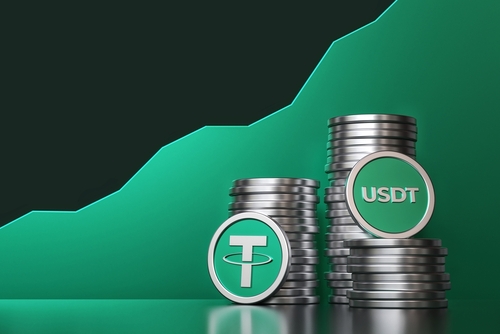
Tezos is becoming an ideal destination for numerous decentralised finance (DeFi) protocols, largely thanks to its recent integration with Tether’s USDT stablecoin.
Last month, the USDT stablecoin launched on the Tezos blockchain. This latest development has paved the way for a rapidly-growing DeFI ecosystem on one of the world’s energy-friendly blockchains.
Tether USD is the crypto industry’s most popular stablecoin and serves as the backbone of the DeFi industry as it allows investors to quickly move into and out of positions and weather the storms amid bearish market sentiment.
Tezos, on the other hand, is an energy-efficient and self-upgradable Proof of Stake protocol that has a low annual carbon footprint that’s equivalent to just 17 people’s yearly energy use.
Because of its ultra-low carbon emissions, the Tezos blockchain has become a favourite stomping ground for environmentally-aware crypto enthusiasts, who also benefit from its minimal transaction fees of less than a cent.
The Tezos blockchain’s benefits haven’t gone unnoticed, with numerous financial service firms deploying on the network.f Tether USD’s integration looks like it will accelerate its DeFi prospects.
Following USDT’s integration with Tezos, the world’s number one cryptocurrency exchange Binance has made it available to trade, potentially opening the floodgates for yet more stablecoins to switch to Tezos.
DeFi apps on Tezos have already taken advantage of Tether USD’s deployment. For instance, the Quipiswap DEX has since launched its Stable DEX on Tezos, allowing users to farm for rewards and collect dividends using stablecoins, including USDT.
Another DeFi platform, Youves, is now offering USDT holders the chance to participate in its long-term farming liquidity pool that provides up to 15% APR. The Plenty DeFi ecosystem offers up to 20% APR in PLENTY rewards on multiple LP pools.
There are plenty of good reasons developers desire to build on Tezos. DeFi apps will not only be able to boast their low-energy credentials but also take advantage of the latest blockchain innovations.
All these are possible because Tezos employs an on-chain, DAO-based governance model that allows for rapid adoption of new functionality – already, it has undergone ten major upgrades with no forks.
With Tezos’s fast transaction speed, USDT’s integration on the blockchain makes it easier for numerous DeFi projects to launch on the network.
The Tezos blockchain will soon be adding some even more exciting capabilities for DeFi with its upcoming Kathmandu update, which will enable testing of smart contract-based optimistic rollups – a key privacy solution – on bleeding edge testnets. On the security side, Kathmandu will also bring improved randomness with the integration of Verifiable Delay Functions.
Tezos co-founder Arthur Breitman recently said he hopes to see a big future push from the world of DeFi. With USDT now a big part of the Tezos ecosystem, more DeFi projects will launch on the blockchain over the coming months and years.
This news is republished from another source. You can check the original article here

Be the first to comment